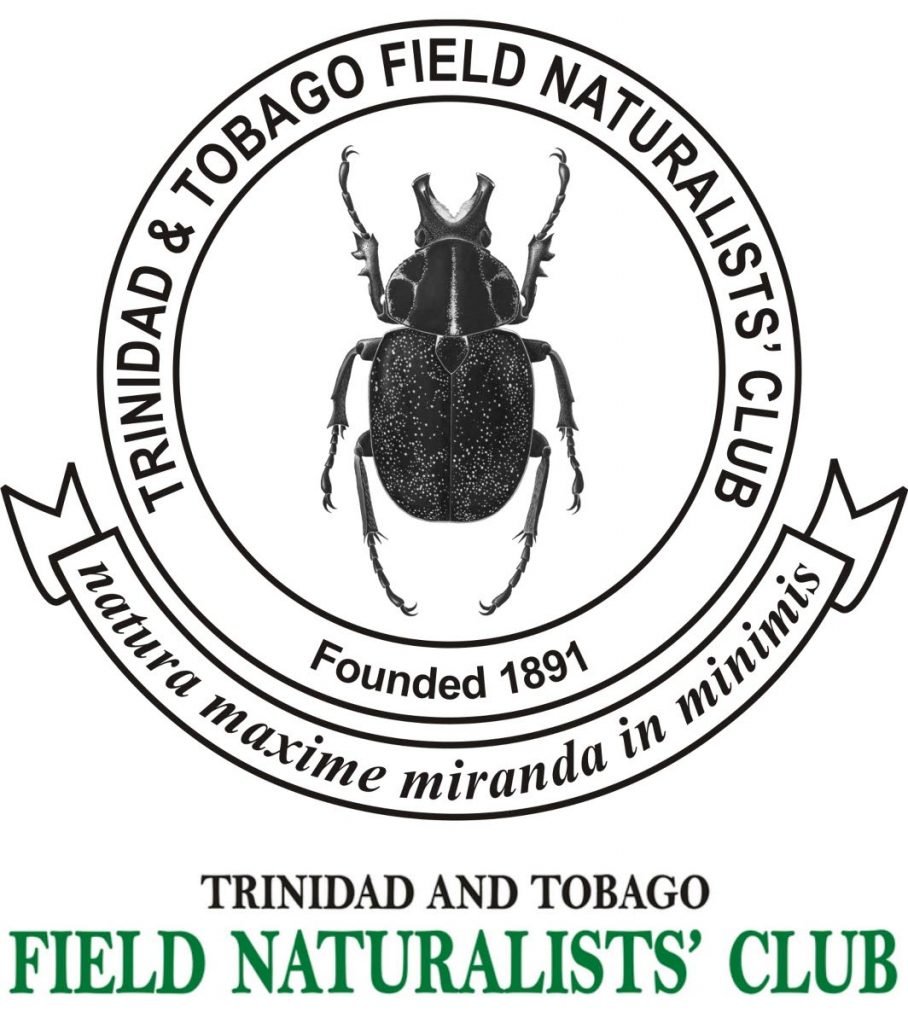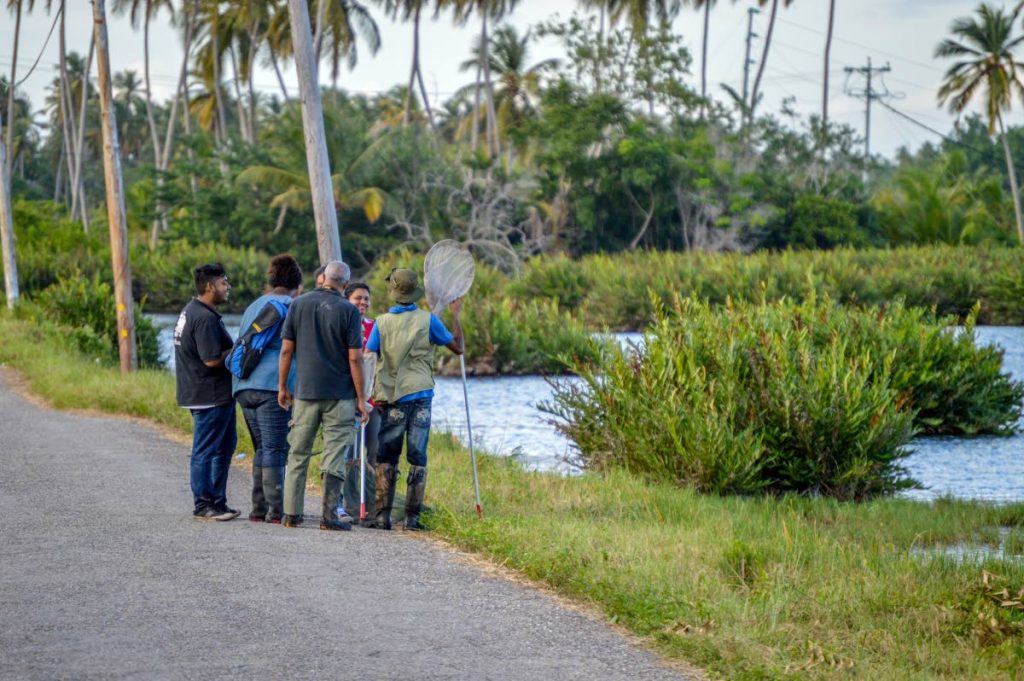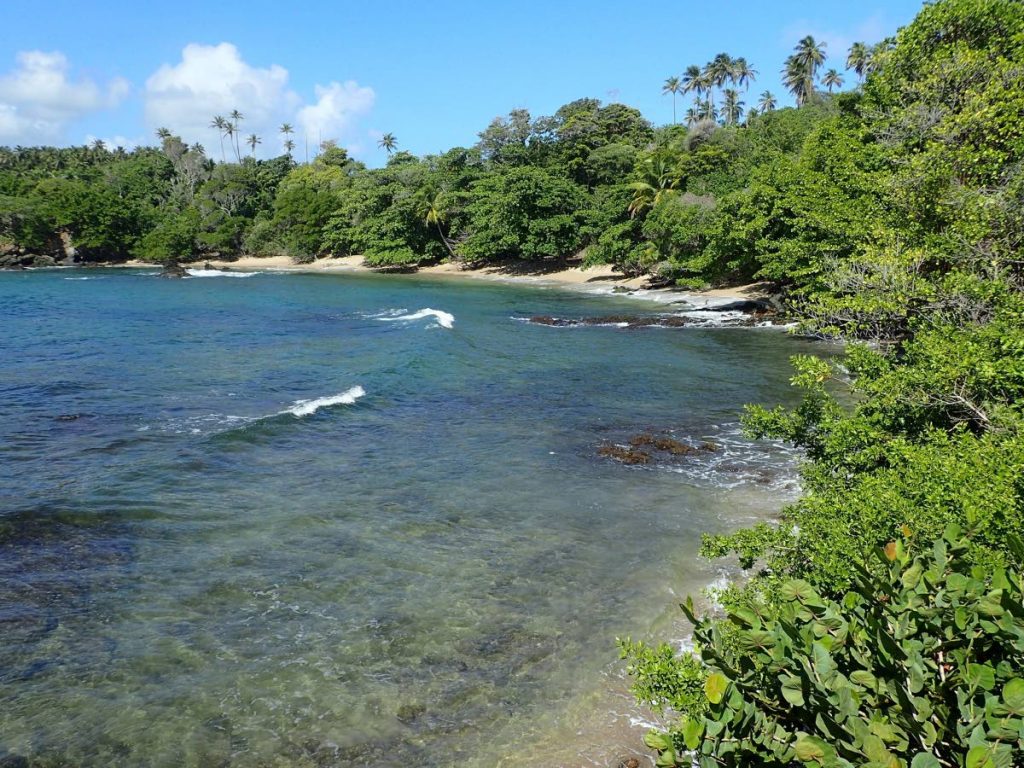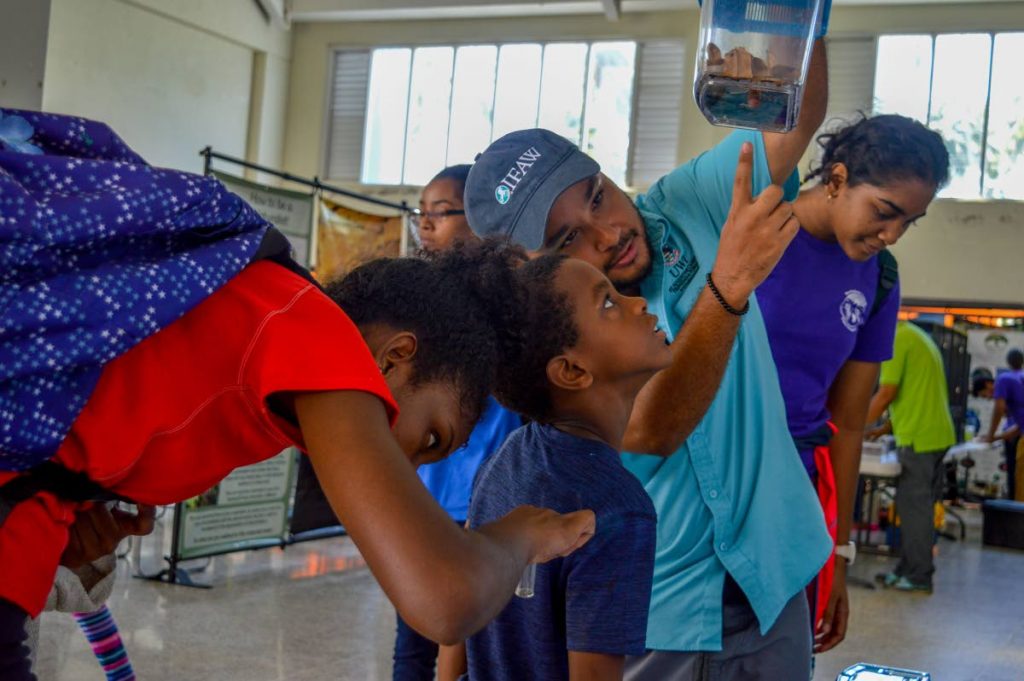Bioblitz goes to Toco

Alexis Marianes
This year, the TT Field Naturalists’ Club, in collaboration with the University of the West Indies' Zoology Museum, will be hosting the 7th annual Bioblitz in Toco, from November 17 to 18.
The Bioblitz is a special event that brings together scientists, naturalists, nature lovers, children, and members of the public in an exciting recreational setting ideal for learning, exploring, camping, and liming.
From Friday to Saturday morning, over 100 experts in various ecological fields will gather themselves and all their sampling materials to Bioblitz base camp at the Toco Regional Complex. The 24 hours of surveying will begin at noon on Saturday where scientists and volunteers will begin cataloguing all the plant, insect, fish, algae, fungi, reptile, amphibian, mammal, and bird species that they can detect.

Sampling will continue through the evening and will stop at noon on Sunday, at which point a master species list will be compiled. While the naturalists are collecting samples and tallying their lists, instructors from the Field Naturalists’ Club, UWI Zoology Museum, and the Serpentarium will be at base camp from 7 am to 2 pm, on Sunday, to do demonstrations and lead short nature walks for the public. The main event of the Bioblitz is the announcement of the total number of species detected, which occurs around 1 pm on Sunday.
This year’s Bioblitz is special because of Toco’s imminent development for expansion of the east-west highway and establishment of an east coast port. The Sangre Grande area and surrounding habitats have already experienced dramatic and irreversible habitat alteration due to the highway expansion, so the Bioblitz sampling in Toco will allow the documentation of the local flora and fauna before it is also dramatically altered. Bioblitz reports are publicly available for the use of anyone interested in the conservation of biodiversity or the care for developmental planning in the Toco area.

The north-east corner of Trinidad offers a unique combination of habitats, and since there has been relatively little development in the area, it also offers a good look at some rare inhabitants. The critically endangered Trinidad Piping Guan, or Pawi, is one of TT’s two endemic birds. Although they have not been seen in our Bioblitz sampling area, the north-eastern portion of Trinidad is the only place in the world where the approximately 70-200 birds remain.
Due to habitat loss and poaching, the opportunity to see this majestic source of national pride in the wild is dwindling, so the Bioblitz is a great opportunity to visit the Pawi in nearby villages. In addition to the Pawi, the north east offers a plethora of unique plant and animal experiences.

Private collections of plants, fruits, animals, articles, and books will be on display and available for educational purposes, and there will be educational ambassadors from the Wildlife Division, the Serpentarium, the Asa Wright Nature Centre, UWI Zoology Museum, UWI Biological Society, TT Field Naturalists’ Club, and Trinibats to answer questions and facilitate fun activities like the “guess how many anaconda ribs are in the jar” contest.
Additionally, we are pleased to have the International Year of the Reef participating in our outreach and education activities.
Many thanks to First Citizens bank for sponsorship of this year’s event and their continued support over the years. Come join us on November 18, from 7 am-2 pm, for a fun day of loving the flora and fauna of gorgeous north-eastern Trinidad.


Comments
"Bioblitz goes to Toco"